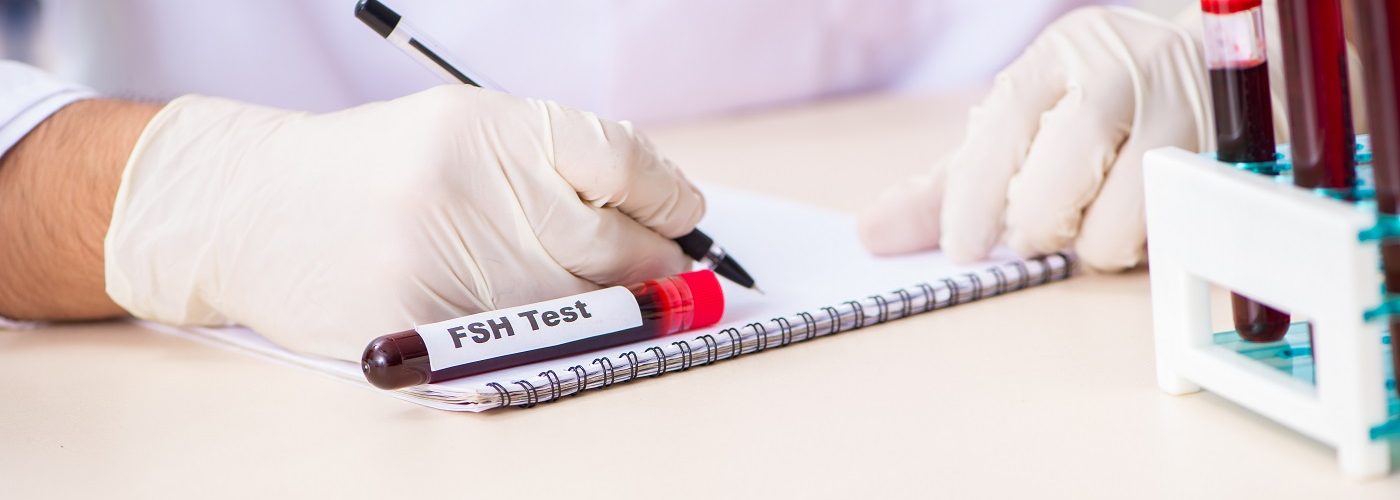
The role of Follicle Stimulating Hormone (FSH) in stimulating the ovaries in women as a part of the monthly menstrual cycle is quite well known. However, FSH is important for both men and women. It is one of the gonadotrophins, the other being Luteinising Hormone, (LH), so called because they stimulate the gonads. In men, this is the testicles, in women, the ovaries. Low levels of FSH can cause fertility problems for both sexes.
In this IVI blog article, we put the spotlight on FSH levels in men. We will take a look at the role of FSH and why it is important for fertility, and the likely impact of FSH levels being low. We also consider some of the steps you can take to increase the level of this essential hormone in order to improve your fertility and your chances of becoming a parent.
What is the role of FSH in men?
FSH is a hormone released by the pituitary gland in the brain. In pre-pubescent boys it plays a role in testicle development. It also increases the number of Sertoli cells which are effectively dormant in the testes until hormonal changes during puberty. It stimulates their role in the development of sperm. Low levels of FSH during this period mean that the testes have a comparatively low number of Sertoli cells. That means that testicle size, sperm count and future fertility could all be compromised. FSH continues to play a role in sexual function after puberty, helping to control the production of sperm.
How can you check your FSH levels?
FSH levels in men remain fairly constant, unlike in women, where they fluctuate with the monthly cycle. It is so possible to carry out a test for FSH levels at any time. This would normally be part of an investigation into the reason for a low sperm count or low sex drive or to see if there is any problem with the testicles. The test is carried out via a simple blood test. You would expect a normal level in an adult male to be between 1.5 and 12.4 mlU/mL. A low level could indicate that there is a problem with the pituitary gland, or the presence of medication which is interfering with its function.
What is the impact of low levels?
FSH works closely with the other gonadotrophin, LH, to produce sperm in the testes. Because of this role, a complete absence of FSH can lead to infertility through a lack of sperm (azoospermia). If there is a deficient FSH level, the result could be limited sperm production, but becoming a father could still be possible.
How can you increase FSH levels in men?
Increasing levels of FSH can improve the production of sperm in the testes. This may be achieved through lifestyle changes or through medication.
Lifestyle factors
In addition to the most common cause, which is pituitary malfunction, low levels of FSH can be caused by stress, hormonal drugs such as testosterone and steroids or an underactive thyroid gland. Also by anorexia, alcohol abuse, or eating a diet very high in soy protein. It follows that making changes where possible to these factors would help to increase FSH levels by lifestyle and natural means. However if your diagnosis is low FSH it’s important to talk to your doctor or fertility specialist. The solution could be developing a programme that will be the most appropriate in your particular circumstances.
Hormone therapy
A medical approach to increasing FSH levels in men could be to prescribe hormonal replacement therapy. However, as for lifestyle changes, it is important for you to talk to your doctor or fertility specialist. He will be able to advise on what would be most effective in your case.
Can assisted fertility treatment help?
If you have low levels of FSH resulting in a low sperm count or poor sperm quality, there is a good chance that fertility treatment can help. The treatments most frequently recommended are Intrauterine Insemination (IUI) or In Vitro Fertilisation (IVF). The option would depend on the medical and fertility history of you and your partner and your individual circumstances.
Sperm preparation
The way in which IUI or IVF can be effective in the case of low sperm count or poor sperm quality is through preparation of a sperm sample to optimize its quality and hence improve its chances of fertilizing an egg. This optimization is in order to select those sperm which are of good quality and have good motility. To do so it’s necessary to remove abnormal or dead sperm, as well as immature sperm cells, white cells and other debris.
Modern fertility clinics use three main methods to optimize a sperm sample:
- Sperm washing removes seminal plasma from a semen sample by the use of centrifugation.
- The swim-up method utilizes the tendency of motile sperm to self-migrate from the bottom to the top fraction of a semen sample. Motile sperm are separated using this method, and then subjected to centrifugation to remove any remaining dead or immobile sperm.
- Density gradient centrifugation depends on the fact that motile sperm have a higher density than dead or immotile sperm. The sperm with higher density are selected through repeated centrifugation.
Whichever is the method, the intended result is that the prepared sample, when used in an IUI procedure or to fertilize eggs in the laboratory during IVF, will have a greatly improved chance of fertilizing an egg to produce an embryo. All being well, this will result in a healthy pregnancy and the successful birth of your child.
Find out more about IVI
Do you have concerns about your fertility as a result of low FSH levels? For any other reason? Don’t feel too despondent. Do get in touch with us at IVI. With an overall success rate of over 90%, there’s an excellent chance that we can help.





Comments are closed here.